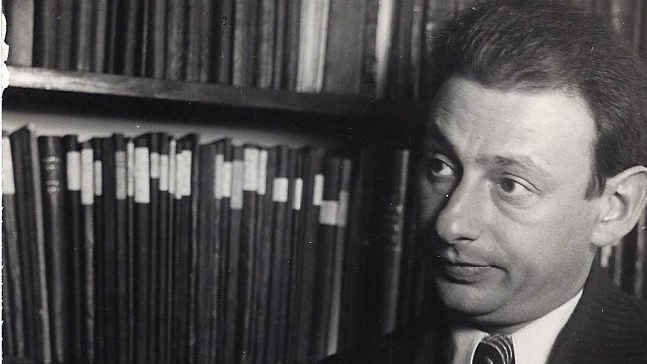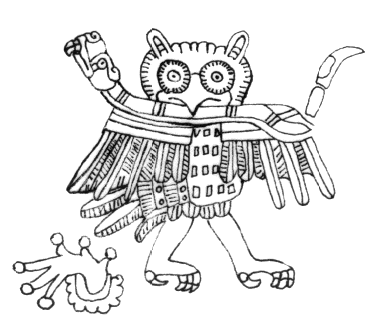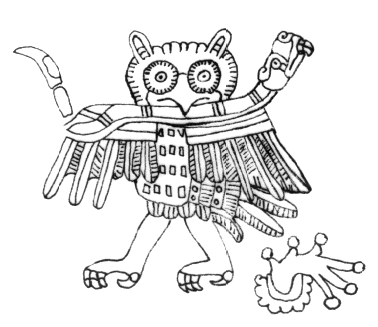ゲルショム・ショーレム
A
small bibliography of Gershom Scholem, 1897-1982

ゲルショム・ショーレム
A
small bibliography of Gershom Scholem, 1897-1982

Counter-History (=反歴史という訳語があるが「対抗=史」のほうが僕にはしっくりくる)とは、滅ぼされた人間からみる歴史叙述であり、その叙述が甦らせない限り、歴史記述は常に人間にとっては不完全なままであり続けるものだ(→「反歴史とは?」)。
「わたしは、ユダヤ教学から「隠れた美点」を発掘するショーレムの歴史的方法をカウンター・ヒストリー(counter-history)と名づけたいと思う」——ビアール『カバラと反歴史』26ページ、木村光二訳,晶文社 , 1984年。
1897 12月5日ベルリンにてうまれる
1897-1910 「家系と幼年時代」/ユダヤ人の環境(『ベルリンからエルサレムへ』1977[1991])
1911-1914 「ユダヤ人の目覚め」(『ベルリンからエルサレムへ』1977[1991])
1913 ショーレムは《始まり》サークルの演説でベンヤミンをはじめてみる(ショーレム1973:
197)
1915 Gerhard Scholem met Walter Benjamin in Munich in 1915, when the former was seventeen years old and the latter was twenty-three.
1915-1916 「ベルリン大学生」(『ベルリンからエルサレムへ』1977[1991])
1917 「パンシオーン・シュトルック」(『ベルリンからエルサレムへ』1977[1991])
1917-1918 「イェーナ」(『ベルリンからエルサレムへ』1977[1991])
1918 ベンヤミンと共にベルンに滞在。He was in Bern in 1918 with Benjamin when he met Elsa (Escha) Burchhard, who became his first wife.
1918-1919 「ベルン」(『ベルリンからエルサレムへ』1977[1991])
1919 ミュンヘン大学からセム語研究で学位
1919-1922 「ミュンヘン」(『ベルリンからエルサレムへ』1977[1991])
1922-1923 「もう一度ベルリンとフランクフルト」(『ベルリンからエルサレムへ』1977[1991])
1923 英領パレスチナに移民
1923-1925 「エルサレム」(『ベルリンからエルサレムへ』1977[1991])
1933 ヘブライ大学のユダヤ神秘主義講座の初代 教授に就任
1936 ファニア・フロイト(Fania Freud)と再婚
1940 ヴァルター・ベンヤミン「歴史哲学テーゼ」
1941 Major Trends in
Jewish Mysticism
1957 Sabbatai Zevi, the Mystical Messiah
1958 Scholem was
awarded the Israel Prize in Jewish studies
1965 同大学名誉教授; (1965), On Kabbalah and its Symbolism
1968 he was elected president of the Israel Academy of Sciences and Humanities.
1969 he received the Yakir Yerushalayim (Worthy Citizen of Jerusalem) award
1977 he was awarded the
Bialik Prize for Jewish thought
リスト
文献
文献
テキスト
反歴史の立場は、デイヴィッド・ビアールによれば、ヴァルター・ベンヤミンが「歴史哲学テーゼVII」において「歴史を逆なでする」アプローチに酷似する
"Think of the darkness
and the great cold / In this valley, which resounds with misery. –
Brecht, Threepenny Opera/ Fustel de Coulanges recommended to the
historian, that if he wished to reexperience an epoch, he should remove
everything he knows about the later course of history from his head.
There is no better way of characterizing the method with which
historical materialism has broken. It is a procedure of empathy. Its
origin is the heaviness at heart, the acedia, which despairs of
mastering the genuine historical picture, which so fleetingly flashes
by. The theologians of the Middle Ages considered it the primary cause
of melancholy. Flaubert, who was acquainted with it, wrote: “Peu de
gens devineront combien il a fallu être triste pour ressusciter
Carthage.” [Few people can guess how despondent one has to be in order
to resuscitate Carthage.] The nature of this melancholy becomes
clearer, once one asks the question, with whom does the historical
writer of historicism actually empathize. The answer is irrefutably
with the victor. Those who currently rule are however the heirs of all
those who have ever been victorious. Empathy with the victors thus
comes to benefit the current rulers every time. This says quite enough
to the historical materialist. Whoever until this day emerges
victorious, marches in the triumphal procession in which today’s rulers
tread over those who are sprawled underfoot. The spoils are, as was
ever the case, carried along in the triumphal procession. They are
known as the cultural heritage. In the historical materialist they have
to reckon with a distanced observer. For what he surveys as the
cultural heritage is part and parcel of a lineage [Abkunft: descent]
which he cannot contemplate without horror. It owes its existence not
only to the toil of the great geniuses, who created it, but also to the
nameless drudgery of its contemporaries. There has never been a
document of culture, which is not simultaneously one of barbarism. And
just as it is itself not free from barbarism, neither is it free from
the process of transmission, in which it falls from one set of hands
into another. The historical materialist thus moves as far away from
this as measurably possible. He regards it as his task to brush history
against the grain." - On the Concept of History, VII
●反歴史を理解するための「反蔵書」の概念について……
「反蔵書とは、タレブ(=ナシーム・ニコラス・タレ
ブ)『ブラックスワン(上)』(邦訳
、ダイアモンド社、2009年)の中に出てくる言葉である。具体的にはこういうことである。ウンベルト・エーコの蔵書癖は半端なものではなく、3万冊にお
よぶ私設図書館の体(てい)をなすものだった。いたづら者の知識人は、その図書館を訪問する人間を2つにわける。まずは(1)「ものすごい蔵書ですね。一
体何冊読んだのですか?」と質問する人と、(2)蔵書は調査のために道具だと理解している人である。タレブによると情報論的価値(=経済学でいう稀少性と
いう観点に相似して)から言って、読んだ本は読んでない本よりも価値は「下がる」はずだ。齢を重ねると読んだ本も読んでいない本も増大するが、それはその
人がものについて知り得た証でもある。だから、読んでいない本の蓄積は、いまだ自分の知識として習得されていないものの蓄積である。その意味で読んでいな
い未読の蔵書は、反蔵書ということができるとタレブは言う。したがって、最初の質問すなわち「一体何冊読んだのですか?」と聞く人は、読んだ本のリスト
が、エーコの頭の中に入っている情報だと「錯覚」する人のことである。ここでの錯認とはこういうことだ。自分が勉強していないことや、(読書という)経験
を積んでいないリストを誇る「反履歴書」を売り込む人はいない。それはライバルにとって自分のウィークポイントであるということを曝け出すことに繋がると
「錯覚」をもっている。タレブは、読んだ本から得た情報をひけらかし書物を自尊心の増幅器につかう者は尊敬に値しないと考えているようだ。自分の反蔵書
——このレベルでは蔵書の中の未読の本というよりも自分が知らないこと「一般」という概念にまで昇華されているが——が何であるかということを自覚する者
が、真の学者、本物の中の本物学者——タレブは「反学者」という——なのではないかということだ」出典:CO-Design_terms2020.html#03-013 )
関連文献
カバラーと反歴史 : 評伝ゲルショム・ショーレム / デイヴィッド・ビアール著 ; 木村光二訳,晶文社 , 1984
”Nietzsche criticized "the genealogists" in On the Genealogy of Morality and proposed the use of a historic philosophy in order to critique modern morality by supposing that it developed into its current form through power relations. But scholars note that he emphasizes that rather than being purely necessary developments of power relations, these developments are to be exposed as at least partially contingent, and the upshot is that the present conception of morality could always have been constituted otherwise. Even though the philosophy of Nietzsche has been characterized as genealogy, he only uses the term in On the Genealogy of Morality, the later philosophy that has been influenced by Nietzsche and which is commonly described as genealogy shares several fundamental aspects of the insights of Nietzsche. Nietzschean historic philosophy has been described as "a consideration of oppositional tactics" that embraces instead of foreclosing the conflict between philosophical and historical accounts."- Genealogy, by Wiki
反歴史は「参加」(engagé)によって書かれた 歴史である——デイヴィッド・ビアール(1984:352)
章立て
序.ユダヤ教学についての省察
1.19世紀の遺産
2.修正と革命
3.ベルリンからエルサレムへ
4.神秘主義
5.神話
6.メシアニズム
7.歴史記述の政治学
8.神学・言語・歴史
9.反歴史
エピローグ:神秘主義と現代性の間で
■拾遺
リンク
テキスト
"It is the appearance of some radical evil, previously unknown to us, that puts an end to the notion of developments and transformations of qualities. -Here, there are neither political nor historical nor simply moral standards but, at the most, the realization that something seems to be involved in modern politics that actually should never be involved in politics as we used to understand it, namely all or nothing — all, and that is an undeter- mined infinity of forms of human living-together, or nothing, for a victory of the concentration-camp system would mean the same inexorable doom for human beings as the use of the hydrogen bomb would mean the doom of the human race." - HR, TOTALITARIANISM IN POWER 443-444
It is inherent in our
entire philosophical tradition that we cannot conceive of a "radical
evil," and this is true both for Christian theology, which conceded
even to the Devil himself a celestial origin, as well as for Kant, the
only philosopher who, in the word he coined for it, at least must have
suspected the existence of this evil even though he immediately
rationalized it in the concept of a "perverted ill will" that
could be explained by comprehensible motives. Therefore, we actually
have nothing to fall back on in order to understand a phenomenon that
nevertheless confronts us with its overpowering reality and breaks down
all standards we know. There is only one thing that seems to be
discernible: we may say that radical evil has emerged in connection
with a system in which all men have become equally superfluous. The
manipulators of this system believe in their own superfluousness as
much as in that of all others, and the totalitarian murderers are all
the more dangerous because they do not care if they themselves are
alive or dead, if they ever lived or never were born. The danger of the
corpse factories and holes of oblivion is that today, with populations
and homelessness everywhere on the increase, masses of people are
continuously rendered superfluous if we continue to think of our world
in utilitarian terms. Political, social, and economic events everywhere
are in a silent conspiracy with totalitarian instruments devised for
making men superfluous. The implied temptation is well understood by
the utilitarian common sense of the masses, who in most countries are
too desperate to retain much fear of death. The Nazis and the
Bolsheviks can be sure that their factories of annihilation which
demonstrate the swiftest solution to the problem of over-population, of
economically superfluous and socially rootless human masses,
are as much of an attraction as a warning. Totalitarian solutions may
well survive the faU of totalitarian regimes in the form of strong
temptations which will come up whenever it seems impossible to
alleviate political, social, or economic misery in a manner worthy of
man. HR, TOTALITARIANISM IN POWER 459-460.
文献
その他の情報
Do not copy and paste, but you might [re]think this message for all undergraduate students!!!


